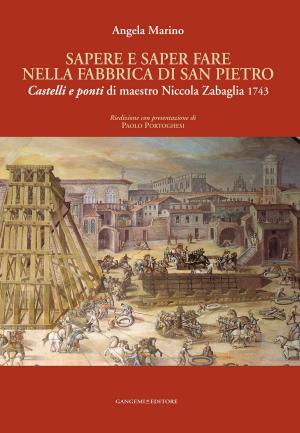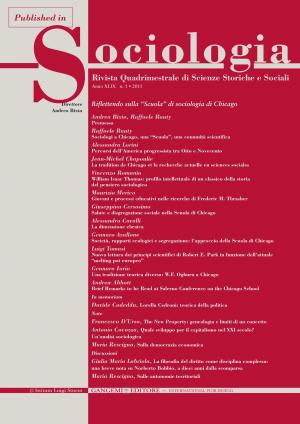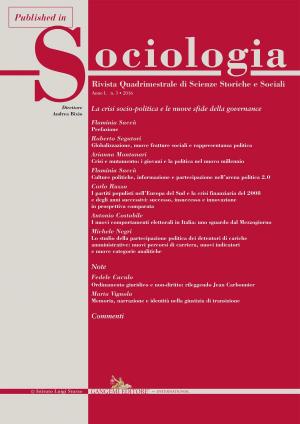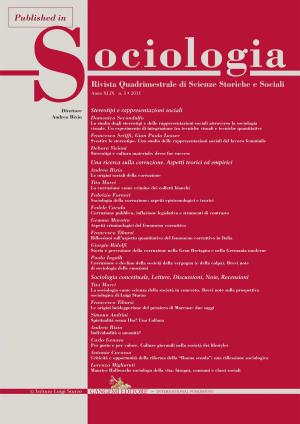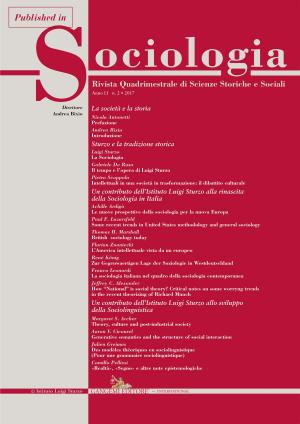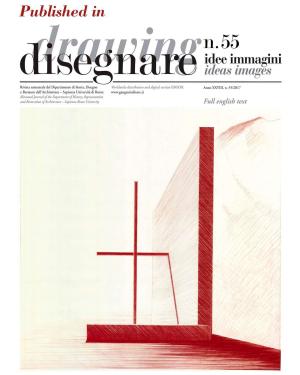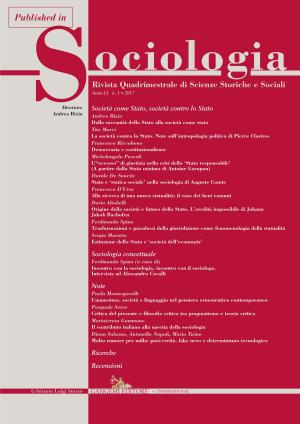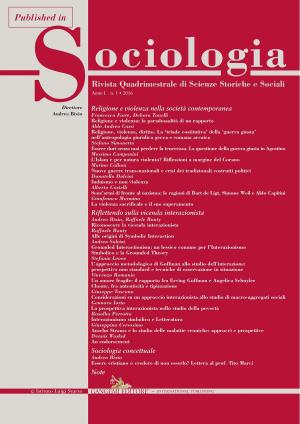Ambiguous Sacred: Between Religion and Spirituality
Published in Sociologia n. 2/2018 - Rivista quadrimestrale di Scienze Storiche e Sociali dell'Istituto Luigi Sturzo, diretta da Andrea Bixio
Nonfiction, Social & Cultural Studies, Social Science, Sociology| Author: | Anthony J. Blasi, Olga Breskaya, Giuseppe Giordan | ISBN: | 9788849243703 |
| Publisher: | Gangemi Editore | Publication: | April 11, 2019 |
| Imprint: | Gangemi Editore | Language: | English |
| Author: | Anthony J. Blasi, Olga Breskaya, Giuseppe Giordan |
| ISBN: | 9788849243703 |
| Publisher: | Gangemi Editore |
| Publication: | April 11, 2019 |
| Imprint: | Gangemi Editore |
| Language: | English |
The sociology of spirituality continues to highlight new socio-religious phenomena rooted in cultural revolutions in the modes of spiritual seeking (Wuthnow 1998), holistic milieux (Heelas and Woodhead 2005), and a ‘democratization of the sacred’ or restructuring of ways of legitimizing relating to the sacred (Giordan 2016). This ‘spiritual perspective’ brought new sociological insights into the analysis of the relationship with the sacred in two ways. First, it coupled the sacred to a subjective turn, locating the sacred in individual experiences in holistic milieux and radically proclaiming the sacralization of self-authority. Second, the theoretical focus on the spiritual turn and recent empirical studies on the religiosity/spirituality divide raised new questions for the sociological understanding of the sacred with elaborated theories of religious rituals, religious experience, or intrinsic religiosity (Durkheim 1960, Otto 1936, Simmel 1997), all needing inquiry into the sociological ambiguities of the sacred and the secular. The recent focus on the relationship between spirituality and the sacred (Heelas 2008, Voas and Bruce 2007, Versteeg 2007) evolved with the growing interest in the changing forms of religious life characterized by the global cultural trends of consumerism, pluralism, and individualism in the societies of modernity or postmodernity. New sociological arguments for the secularization thesis also drew attention. A recent plea appeared after the theoretical overview of empirical studies about spirituality, discerning theistic and holistic spiritualties with their different attitudes towards the sacred. Versteeg explains that theistic spirituality highlights an ‘external sacred’ for the individual, while the holistic type features a “connectedness to a sacred whole” (Versteeg 2007: 102). He notes that this distinction resembles the definitions of religion and spirituality introduced in the Kendall Project report by Heelas and Woodhead (2005). This allowed Voas and Bruce to defend the secularization thesis anew: if spirituality consists of “subjective-life forms of the sacred which emphasize inner sources of significance and authority and the cultivation of sacralization of unique subjective lives” (Voas and Bruce 2007: 44), it brings new “symptom of secularization, not a durable counterforce to it” (Voas and Bruce 2007: 43). The uncertainty of holistic spirituality practitioners in defining their experiences in terms of spirituality, and the distancing of holistic spirituality from theistic spirituality make it reasonable for sociologists to return to classical theories of the sacred that emphasized its ambiguous nature.
The sociology of spirituality continues to highlight new socio-religious phenomena rooted in cultural revolutions in the modes of spiritual seeking (Wuthnow 1998), holistic milieux (Heelas and Woodhead 2005), and a ‘democratization of the sacred’ or restructuring of ways of legitimizing relating to the sacred (Giordan 2016). This ‘spiritual perspective’ brought new sociological insights into the analysis of the relationship with the sacred in two ways. First, it coupled the sacred to a subjective turn, locating the sacred in individual experiences in holistic milieux and radically proclaiming the sacralization of self-authority. Second, the theoretical focus on the spiritual turn and recent empirical studies on the religiosity/spirituality divide raised new questions for the sociological understanding of the sacred with elaborated theories of religious rituals, religious experience, or intrinsic religiosity (Durkheim 1960, Otto 1936, Simmel 1997), all needing inquiry into the sociological ambiguities of the sacred and the secular. The recent focus on the relationship between spirituality and the sacred (Heelas 2008, Voas and Bruce 2007, Versteeg 2007) evolved with the growing interest in the changing forms of religious life characterized by the global cultural trends of consumerism, pluralism, and individualism in the societies of modernity or postmodernity. New sociological arguments for the secularization thesis also drew attention. A recent plea appeared after the theoretical overview of empirical studies about spirituality, discerning theistic and holistic spiritualties with their different attitudes towards the sacred. Versteeg explains that theistic spirituality highlights an ‘external sacred’ for the individual, while the holistic type features a “connectedness to a sacred whole” (Versteeg 2007: 102). He notes that this distinction resembles the definitions of religion and spirituality introduced in the Kendall Project report by Heelas and Woodhead (2005). This allowed Voas and Bruce to defend the secularization thesis anew: if spirituality consists of “subjective-life forms of the sacred which emphasize inner sources of significance and authority and the cultivation of sacralization of unique subjective lives” (Voas and Bruce 2007: 44), it brings new “symptom of secularization, not a durable counterforce to it” (Voas and Bruce 2007: 43). The uncertainty of holistic spirituality practitioners in defining their experiences in terms of spirituality, and the distancing of holistic spirituality from theistic spirituality make it reasonable for sociologists to return to classical theories of the sacred that emphasized its ambiguous nature.

